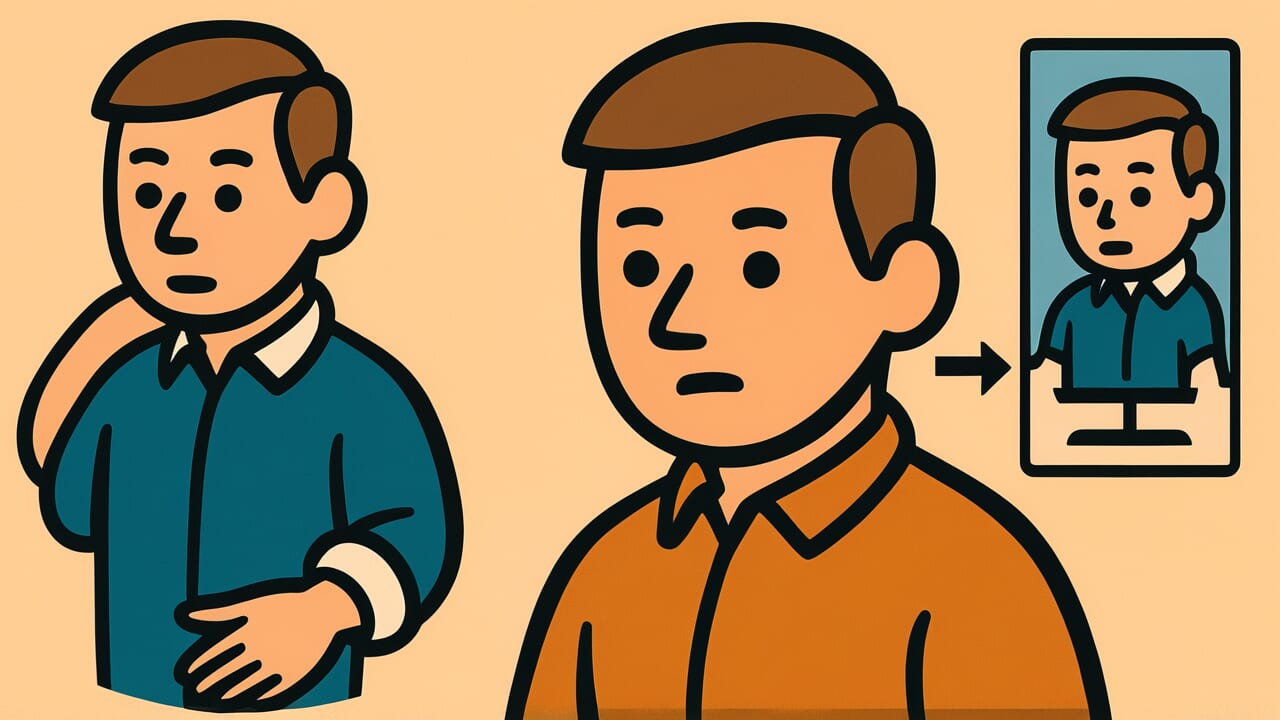How to Read “A wise man changes his mind, a fool never will”
A wise man changes his mind, a fool never will
[uh WYZE man CHAYN-jez hiz MYND, uh FOOL NEV-er wil]
Meaning of “A wise man changes his mind, a fool never will”
Simply put, this proverb means that smart people are willing to change their opinions when they learn new information, while stubborn people refuse to change even when they’re wrong.
The literal words paint a clear picture. A wise person adjusts their thinking based on new facts. A foolish person stays locked in their original thoughts. The proverb shows us two opposite ways of handling information and experiences.
We use this wisdom all the time in modern life. When someone refuses to admit they made a mistake at work, we see foolishness. When a friend changes their career path after learning it wasn’t right for them, we see wisdom. The saying applies to everything from small daily decisions to major life choices.
What’s interesting about this wisdom is how it flips our usual thinking. Many people think changing your mind shows weakness or confusion. This proverb teaches the opposite. It shows that flexibility comes from strength, not weakness. The ability to grow and adapt actually proves intelligence.
Origin and Etymology
The exact origin of this specific wording is unknown, though similar ideas appear throughout recorded history. Ancient philosophers and teachers often discussed the difference between wisdom and foolishness. The concept of mental flexibility as a sign of intelligence has deep roots.
This type of saying became important during times when knowledge was expanding rapidly. When people discovered new lands, inventions, or ideas, societies had to decide how to respond. Those who adapted thrived, while those who resisted change often struggled.
The proverb likely spread through oral tradition before appearing in written form. Different cultures developed similar sayings because the truth behind it is universal. As trade and communication increased, these ideas traveled between communities and evolved into the clear statement we know today.
Interesting Facts
The word “wise” comes from an ancient root meaning “to see” or “to know.” This connects wisdom directly to gaining new information and understanding.
The structure of this proverb uses contrast to make its point memorable. Placing opposite ideas side by side helps people remember the lesson more easily.
Similar phrases appear in many languages, suggesting this insight developed independently across different cultures throughout history.
Usage Examples
- Manager to employee: “I see you’ve reconsidered the project timeline based on new data – a wise man changes his mind, a fool never will.”
- Friend to friend: “Don’t be embarrassed about switching your major; you learned more about yourself – a wise man changes his mind, a fool never will.”
Universal Wisdom
This proverb reveals a fundamental truth about human learning and survival. Our brains evolved to gather information and make quick decisions, but they also developed the ability to update those decisions when new evidence appears. This mental flexibility gave our ancestors a crucial advantage in changing environments.
The wisdom touches on a deep psychological tension. Changing our minds requires admitting we were wrong, which can feel threatening to our sense of identity. Our egos want to protect us from feeling foolish or uncertain. However, this protective instinct can become a trap. When we refuse to update our thinking, we stop growing and learning.
The proverb also reveals why some people succeed while others struggle. Those who can adapt their strategies, relationships, and goals based on new information navigate life more effectively. They build better relationships because they can see other perspectives. They make better decisions because they consider fresh evidence. Meanwhile, rigid thinking creates blind spots that lead to repeated mistakes and missed opportunities. The ability to change our minds isn’t just about intelligence—it’s about emotional maturity and the courage to embrace uncertainty as a path to growth.
When AI Hears This
People become trapped when their opinions merge with their identity. Changing your mind feels like losing yourself. This creates a hidden fear that blocks learning. Smart people treat ideas like clothes they can change. Foolish people treat ideas like their skin.
The brain tricks us into thinking we are our beliefs. Admitting mistakes feels like personal attack. This explains why people defend wrong ideas so fiercely. They are not protecting thoughts but protecting themselves. Wisdom means learning to separate who you are from what you think.
Humans created this mental trap by accident. Strong opinions helped early humans survive in groups. But now this same feature blocks growth. The wise person dies a little each time they change. The fool stays the same person forever. Both choices make perfect sense to the human heart.
Lessons for Today
Living with this wisdom means developing comfort with uncertainty and change. The first step involves recognizing when we’re holding onto ideas too tightly. Notice the feeling of defensiveness when someone challenges your opinion. That tension often signals an opportunity to practice mental flexibility rather than dig in deeper.
In relationships, this wisdom transforms how we handle disagreements. Instead of fighting to prove we’re right, we can listen for information that might expand our understanding. This doesn’t mean abandoning all convictions, but rather staying curious about different perspectives. When we model this flexibility, others often respond with more openness too.
The challenge lies in distinguishing between core values and changeable opinions. Some principles deserve our unwavering commitment, while other beliefs can evolve with new experiences. The key is developing the judgment to know which is which. This wisdom also requires patience with ourselves as we learn. Changing deeply held beliefs takes time and often feels uncomfortable. The discomfort itself becomes a sign of growth rather than something to avoid.



Comments